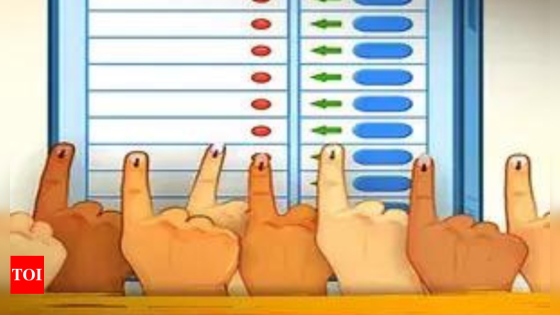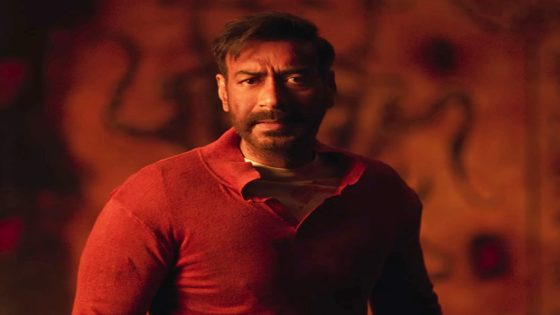JAMMU/SRINAGAR: Campaigning for the final phase of polling in the three-set J&K assembly elections ended peacefully at 6pm Sunday, marking the start of the mandatory 48-hour silent period before voting on October 1. This round will cover 40 assembly segments across seven districts: Jammu, Udhampur, Samba, and Kathua in Jammu region, and Baramulla, Bandipora, and Kupwara in north Kashmir.
Security has been intensified in Kathua, Udhampur, and Samba districts following the recent surge in terrorist activities.Between May 4 and Sept 28, J&K recorded 22 security force fatalities — four in Kashmir valley and 18 in Jammu zone, including J&K police head constable Bashir Ahmed in Kathua on September 28 and CRPF inspector Kuldeep Singh in Udhampur on August 19.
Kathua, Udhampur, and Samba fall on a key axis, serving as a conduit for terrorists entering Kashmir valley. The remote and rugged terrain — including dense vegetation in the upper reaches — of these districts provide natural cover for terrorists.
The electoral contest remains heated, with 415 candidates in the fray. Ajaz Ahmad Guru, brother of Afzal Guru — hanged in 2013 for his role in the 2001 Parliament attack — is contesting as an independent in Sopore. Ajaz sought to steer away from separatism. “I am different from my brother in action and vision, I wish to focus on development rather than separatist ideologies,” he said, vowing to uphold the Constitution.
People’s Conference chief Sajad Gani Lone is running from both Kupwara and Handwara. His main opponent in Kupwara is NC’s Chowdary Ramzan, a former minister. Former DDC chairperson Safina Beg is contesting from Baramulla. Other prominent contenders include former deputy CMs Tara Chand (Congress) and Muzaffar Beig, along with BJP’s Sham Lal and Surjit Singh Slathia.
In the first phase on Sept 18, voter turnout was recorded at 61%, followed by 57% in the second on Sept 26. This final phase covers critical areas for both BJP and opposition parties. Of the 40 seats, 24 fall within the Jammu region — considered a BJP stronghold.
The BJP’s best showing in J&K was in 2014 when it won 18 seats in Jammu, Udhampur, Samba, and Kathua. The party secured a total of 25 seats, all from the Jammu region. BJP is yet to win a seat in the Kashmir valley. In contrast, PDP secured seven of the 15 seats in north Kashmir in 2014, while NC and Congress won three and two seats, respectively.
BJP, the Congress-National Conference (NC) alliance, and PDP fiercely debated key issues such as Pakistan, Article 370, terrorism, and reservation. These elections, the first since the abrogation of Article 370 in 2019, come after a decade-long hiatus from assembly polls in J&K.
PM Narendra Modi led BJP’s campaign, highlighting NDA govt’s achievements over the past decade and promising the restoration of statehood, which he reiterated is a “temporary” Union territory status. Union home minister Amit Shah, defence minister Rajnath Singh, BJP president JP Nadda, and UP CM Yogi Adityanath accused Congress-NC and PDP of following a “Pakistani agenda” and promoting terrorism — charges these parties denied.
Congress functionaries, including Mallikarjun Kharge, Rahul Gandhi, Priyanka Gandhi Vadra, and Sachin Pilot promised to restore statehood and offer a “people-friendly” govt. Rahul’s rallies in Jammu city and Sopore focused on reforms and progress.
Sopore, famed for its apple orchards, became notorious for militancy in the 1990s. Hurriyat’s hard-line separatist Syed Ali Shah Geelani was thrice elected from the constituency. Voter turnout in the 2008 assembly elections was only 19%, though participation surged to 45% in the 2024 Lok Sabha polls.
Election authorities have deployed more than 20,000 staff across 5,060 polling stations, including 240 special booths, with 29 polling stations near the Pakistan border. Over 39 lakh voters are eligible to cast their ballots. The results will be declared on October 8.
Source Agencies




